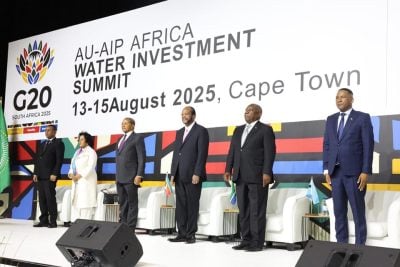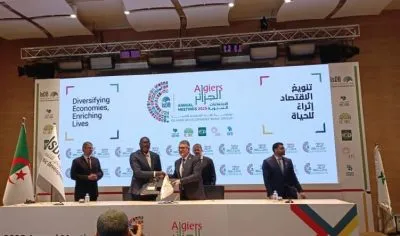This article was produced with the support of Africa Finance Corporation
AFC has announced the establishment of a non-profit foundation to support efforts at reducing emissions, halting deforestation and raising funds for conservation. The announcement was made by its President and CEO, Samaila Zubairu, on the second day of a business and philanthropy climate forum held on the sidelines of COP28 in the United Arab Emirates.
Zubairu explained that the AFC Foundation is being set up in recognition of the need to blend philanthropic capital with public and private capital to ensure that full benefits are realised from carbon capture, especially by communities and governments who are the rightful owners.
“The AFC Foundation will raise knowledge and awareness to halt destruction of our carbon sinks and raise financing for conservation and work hand in hand with partners and our project development and investment teams at AFC, leveraging our deep experience in derisking projects and bringing them to life to create verifiable projects that are required to preserve our natural capital. It will work with the African Union, African governments, and other partners in creating the carbon value chains required to establish and verify reliable and transparent carbon emissions reductions targets,” he revealed.
Delivering the opening remarks at a session on “Harnessing Natural Capital for Net-Zero,” Zubairu emphasised the importance of collaboration in achieving the goals of the climate summit, especially as the world is not on track to meet the net-zero targets due to insufficient capital deployment and inadequate emission reduction efforts.
He noted that this year’s COP was organised around four main pillars, “namely fast tracking emissions reduction, increasing adaptation by focusing on nature, lives and livelihoods, fostering an inclusive transition, and last but not the least paying for it all by mobilising climate finance.”
Africa, with its tropical forests and mangroves, he said, is critical to the achievement of these goals. “They are a vital solution for emissions reduction and we need to rethink our relationship with these carbon sinks that store billions of tonnes of the world’s carbon dioxide,” he urged.
Addressing these challenges calls for boldness and innovation and Zubairu said this must begin with a re-examination of the carbon market models currently in operation.
“We need to come up with a system that places an appropriate value on the critical role that forests in Africa and other regions play in sequestering carbon dioxide. It is imperative that we create incentives for the preservation and expansion of existing forests as they are our surest cost effective method of emissions absorption today,” he argued.
It is also important to link emissions targets to per capita emissions, as countries who bear the least responsibility historically, cannot be asked to make the same trade-offs as those with high pollution economies.
Participating in a moderated panel discussion during the session, Ana Haurie, Co-founder and CEO of Respira, emphasised the pivotal role of the private sector in mobilising finance for natural capital, pointing out that corporations are responsible for 40% of annual emissions. Compliance carbon markets, however, currently cover only 25% of global emissions, while the emission gap continues to widen, with the Nationally Determined Contributions put forward by nations estimated to meet only 11%, instead of the 20-25% reductions in emissions that had been targeted.”
Every year the clock is ticking and we need to take action,” she stressed

 Sign in with Google
Sign in with Google 



